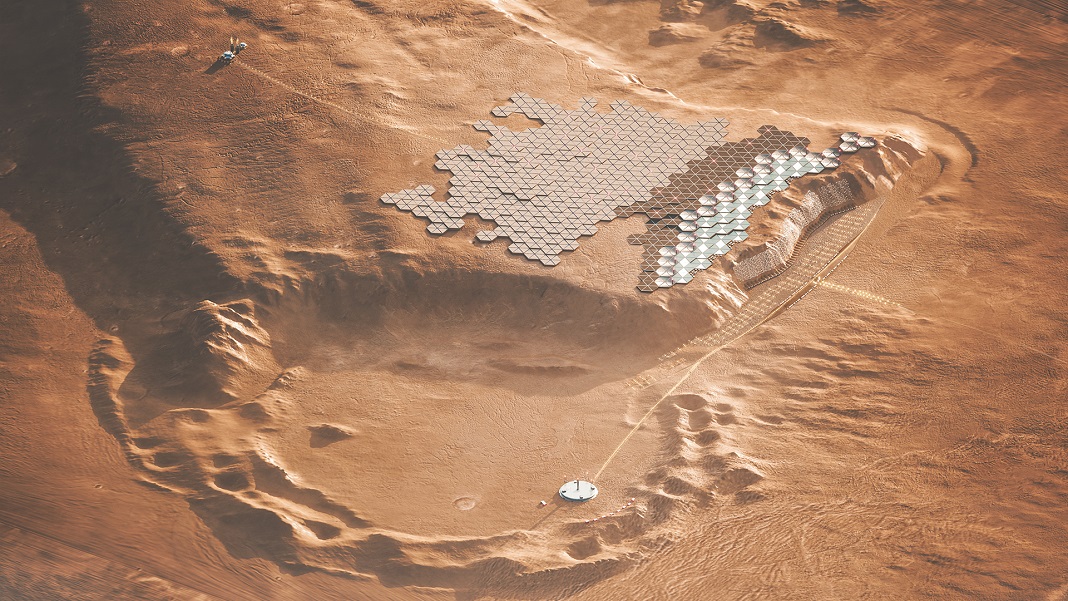
Despite being able to land rovers on Mars and fly helicopters there, it seems humans are still somewhat far away from actually setting foot on the red planet. That’s what an international team of scientists and other experts are doing, and they’ve come up with not just a design, but a full-fledged plan to build the first Martian city, complete with sustainable housing, food, transportation, and energy.
Described in a paper published in March, the city is the brainchild of architecture firm ABIBOO Studio and a multidisciplinary group of space experts from academia and the private sector called SONet . The Mars Society solicited plans for a Martian city in 2020, and this design, called Nüwa, was one of several finalists.
Nüwa would be the capital in a design made up of five linked cities, each housing 200,000 to 250,000 people. “If we were to construct the buildings as on Earth, the buildings would tend to explode from the pressure.
The solar and gamma radiation on Mars forced us to build spaces that are not directly exposed to the sky,” said Alfredo Muñoz, founder of ABIBOO Studio, in a press release. The “macro-buildings” designed for the city are modular and in the shape of huge tubes , with different models meant for living and working.
The modules would be linked by tunnels and elevators, not unlike those found in urban areas on Earth. All the modules include space for green areas, as well as areas called “snow domes” that would help dissipate heat and clean the air through condensation. Seems tricky since Mars is currently a desolate stretch of reddish rock with no identifiable life forms; “As the city grows, it has to be able to depend only on the resources directly on Mars and recycling as much as we can,” said Gisela Detrell, an aerospace engineer who is part of the project. “All the ways that we humans produce, we should be able to produce enough oxygen, water, and food to sustain humans and close the cycle almost completely.
There aren’t a lot of details about what crops specifically will be grown, though the team notes that algae would be a critical part of Nüwa residents’ diets. The name Nüwa comes from a goddess of Chinese mythology. Depicted in ancient art as a snake’s body with a human head, Nüwa was seen as a creator who shaped the first human beings out of clay, and was known for creating people after a great calamity.
